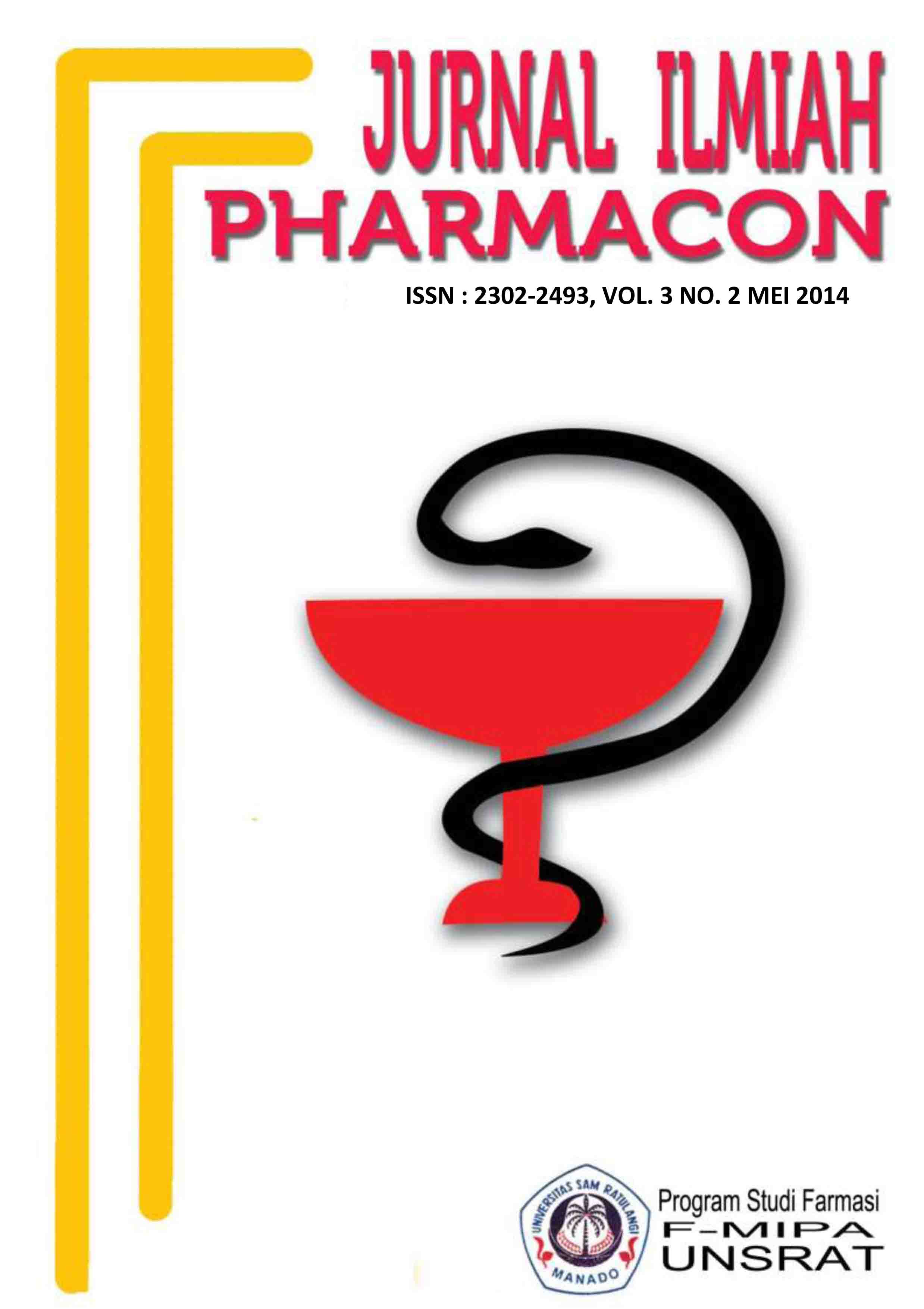UJI EFEKTIVITAS INFUSA DAUN NASI (Phyrnium capitatum Willd) TERHADAP PENURUNAN KADAR GULA DARAH TIKUS PUTIH JANTAN GALUR WISTAR (Rattus norvegicus)
DOI:
https://doi.org/10.35799/pha.3.2014.4769Abstract
This study aims to evaluate the effectiveness of daun nasi infusion (Phyrnium capitatum Willd ) in blood sugar level reduction of rats and determine the relationship between the dose of daun nasi infusion (Phyrnium capitatum Willd) and blood sugar level reduction of rats. This study was experimental study with randomized controlled group design, using male Wistar rats (Rattus norvegicus) that were made hyperglycemia by aloksan 130 mg/bw intravenously. Samples consist of 18 rats which were divided into 6 groups, normal control as a standard of comparison which is not induced by aloksan, positive control (glibenclamide suspension 0.63 mg/bw), negative control (CMC 0.5 %), and treatments group with dose 2.32 g/bw, 4.64 g/bw and 9.28 g/bw daily for two weeks period. The study result of blood sugar level, was analyzed by one way ANOVA and LSD test to know the significant differences between groups. The result shows that daun nasi infusion have an effect to reduce blood sugar level, but the most effective dose of daun nasi infusion is 9.28 g/bw. Daun nasi infusion with doses 2.32 g/bw and 4.64 g/bw were not have a significant difference with positive control.
Â
Key words : Phyrnium capitatum Willd, hyperglycemia, alloxan, Rattus norvegicusPublished
How to Cite
Issue
Section
License
Authors who publish with this journal agree to the following terms:
- Authors retain copyright and grant the journal right of first publication with the work simultaneously licensed under a Creative Commons Attribution-NonCommercial 4.0 International License that allows others to share the work with an acknowledgement of the work's authorship and initial publication in this journal.
- Authors are permitted and encouraged to post their work online (e.g., in institutional repositories or on their website) prior to and during the submission process, as it can lead to productive exchanges, as well as earlier and greater citation of published work (See The Effect of Open Access)










